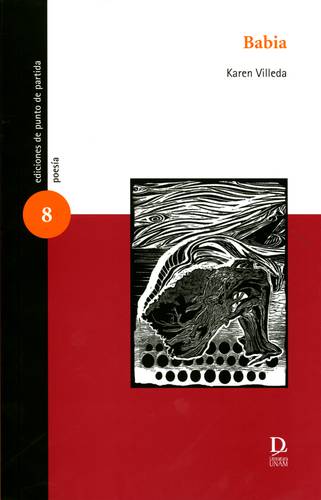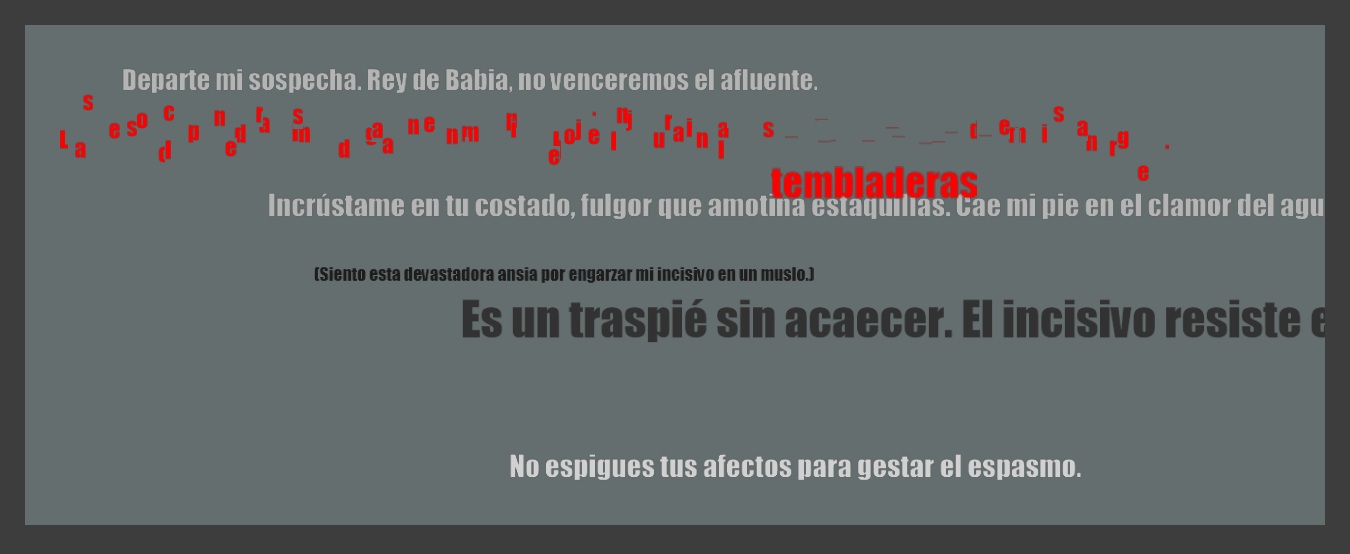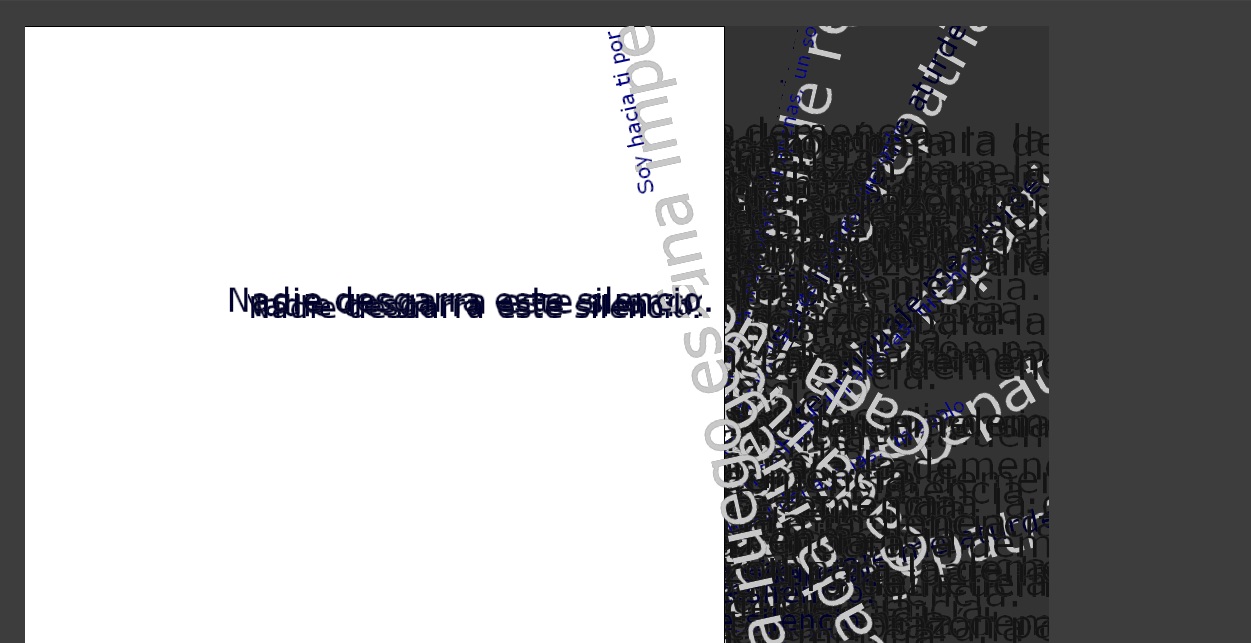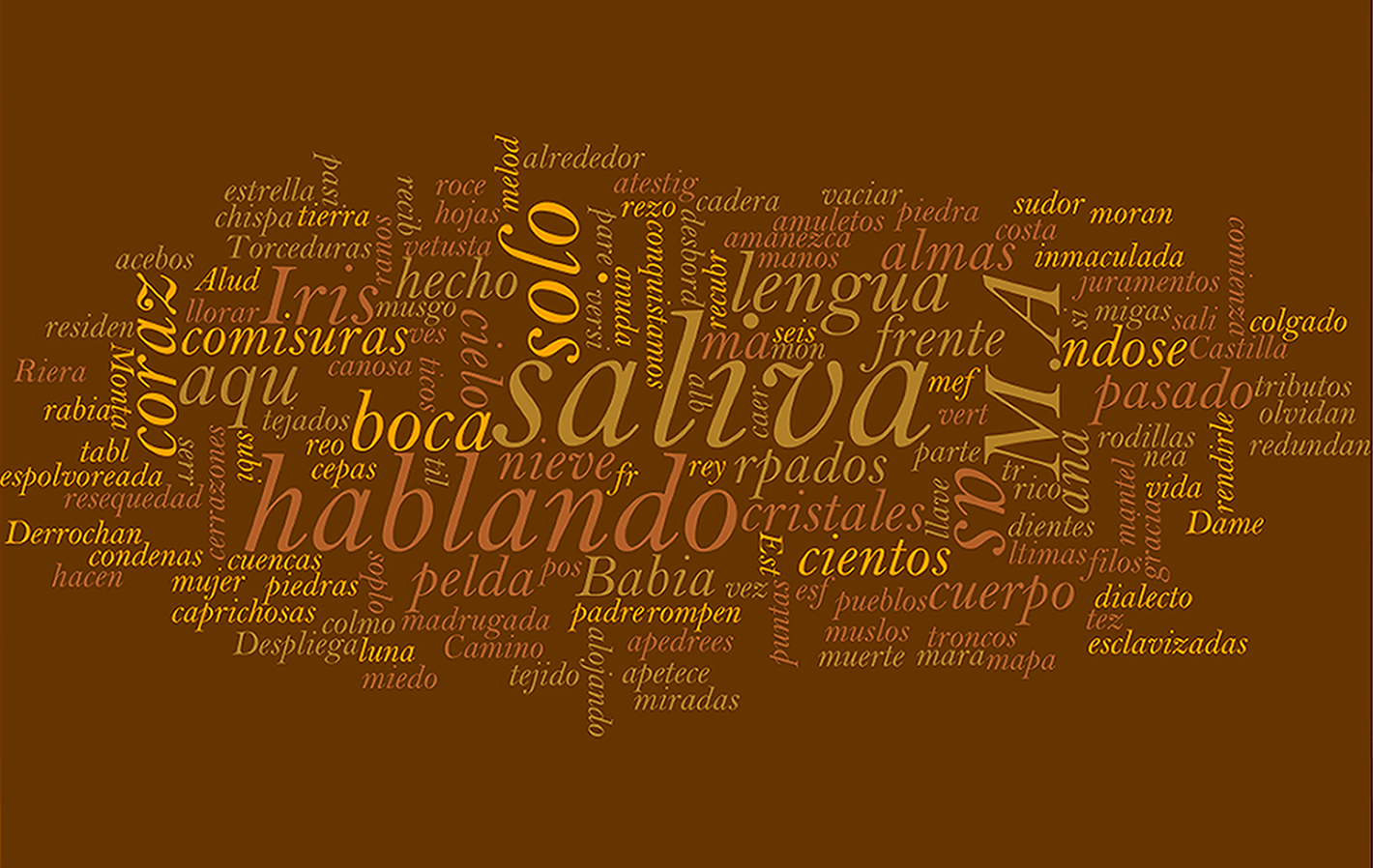Babia, visual poetry
Series of visual poem based on my book Babia, which was published by the National Autonomous University of Mexico (UNAM) in 2011. Some of these visual poems are part of are part of the book in Visual Mexican Poetry: The Transfigured Word, a collection of five artist-books published by the National Council for the Culture and Arts (CONACULTA).
About Babia: The region of Babia, in the kingdom of Leon, was a resting place of the court in the Middle Age. A mountainous place, which was a step in the path of travelers, is the milestone where Villeda weaves her journey to the origin. The poet recreates disturbing characters such as the king, the queen, the old men and leads us through a landscape of memories through an index that is the itinerary itself. The poems located us as party and witness in her "paternal Scripture", which is told from distant voices that are one at once. We, the readers, accompany her with some modesty on a trip to the seed along this disturbing Babia, geographical location and mood.
A remembrance, ashes your face. Ashes your face, a rosary made with milk teeth to ask salvation for years and years until the infamy surpassed infamy faith. Ashes your face, ashes. Your small tassels. As of orphans is hope. As of orphans is tomorrow.
Conception
In May 2011, shortly after the presentation of Babia, I needed to refine my own poetry book. Babia was written from a travel journal during my second visit to Spain in 2010, in which I look back on my first trip to Spain in the company of my father when I was 5 years old. My desire was to break the emotional violence embodied in Babia and reformulate the stifling speech, as the paternal throat has always been "a cave for exile" and too many words surrounded me and those did not form a language for an encounter. This book has been the most painful I've written so far.
Realization
At first , I chose the verses that seemed closer to my conception of Babia, which was an oral narrative and an unofficial history of my family, like : "I'm surprised to have a heart for dementia" or "The saliva of those older than speak up anger". These verses were the genesis of the book, in which I expected to shorten the distance between my father and me. Each visual poem is based on any of these lines, starting with the title. These verses are the ones that causes most mixed feelings when I reread my book and are present in early drafts. I realized that my red notebook that served as travel diary is a poem-object itself. Then, I proceeded to dehumanize some lines in order to make a new representation that is pointless and ignores the dynamic issue of my book: the destructive relationship with my father. The intimacy, then, is undermined with these visual poems , which are impersonal and generally made to get away from constant themes in the book as the Spanish fascism, dysfunctional family and exile.
Technique: photography, digital illustration.
Keywords:
visual poetry, poem-object.
Year of creation: 2011.
Photo Library
Travel Diary 1 Travel Diary 2 Travel Diary 3
Visual poem Visual poem Visual poem
Travel Diary
4
Travel Diary
5
Give Me Anger
Visual poem Visual poem Visual poem
The
King
No One is Tearing up This Silence The
Anger of Old Men
Visual poem Visual poem Visual poem
- Elsa Cross: "The most naked language is perhaps the key test of a poem because when it is stripped of all ornamentation, whatever form it takes, reveals its depth. And that is what I find at the end of Babia. Beyond the previous ruptures of logic and syntax, there is also this nudity."













